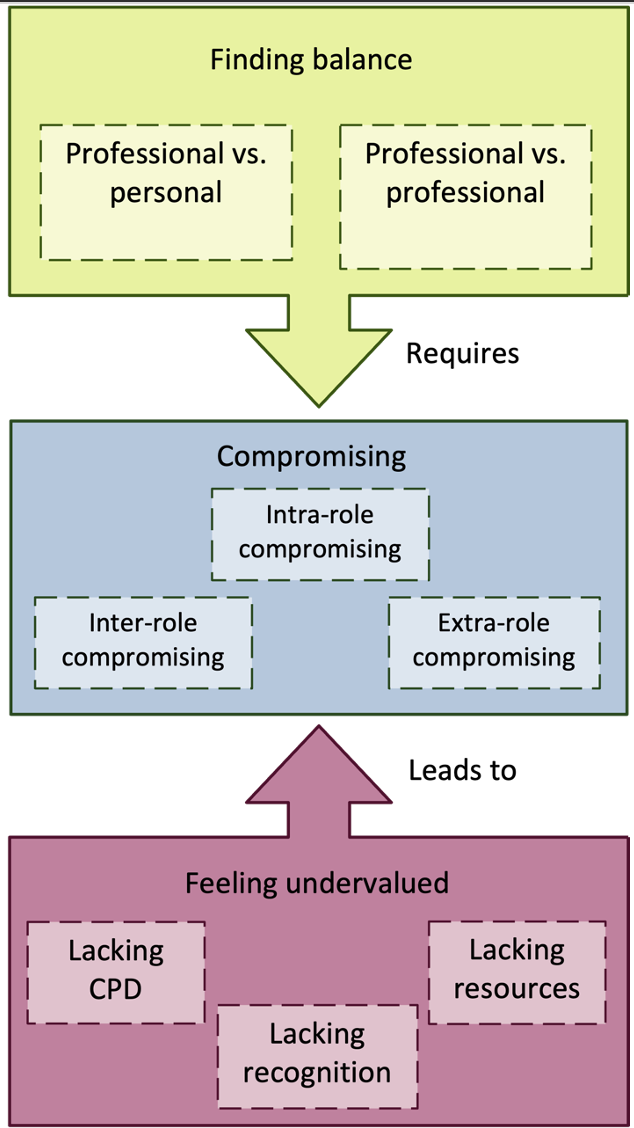From Cells to Sociology: An Animal Scientist's Journey to Grounded Theory

The Genesis of an Animal Scientist
Embarking from the precise world of animal science to the explorative sphere of social research is a path less traveled, fraught with intellectual challenges and shifts in identity. My academic venture began at Ghent University, Belgium, where the intricate world of zoology not only piqued my interest but also opened my eyes to the profound questions surrounding animal health, behaviour, and the wider implications of human-animal relationships. What initially attracted me to the field was not solely the scientific aspects but the broader, intricate dynamics between all living entities and the profound impact of human activities on them.
Initially, the structured and predictable nature of animal science, with its emphasis on empirical data and systematic experimentation, appealed to my analytical mindset. However, as my expertise expanded, I came to realize the existence of more complex, multifaceted issues that lay beyond the grasp of traditional scientific methods. This epiphany marked the onset of an intellectual journey, steering me towards the rich, interpretative domain of grounded theory.
Embracing Uncertainty: Transitioning Through Education
The significant pivot from animal science to grounded theory was not merely a shift but a deep transformation that unfolded over the years through my British doctoral journey. This period of transition was encapsulated in the arduous yet transformative process of undertaking a Doctor of Education (EdD) program. More than a mere academic undertaking, this was a journey of self-discovery and profound personal growth, set against the backdrop of rigorous academic standards.
The EdD program acted as a bridge to the unknown, urging me to grapple with a broad spectrum of research methodologies and educational theories, thereby nudging me out of my scientific comfort zone. This journey through the doctoral program was filled with moments of self-doubt and revelation, as I found myself increasingly drawn to the nuances of grounded theory amidst the structured academic scaffolding provided.
Throughout this period, my identity as a scientist was both questioned and enriched. I was thrust into the realms of qualitative research, a domain starkly different from the empirical certainties I was accustomed to. This transformative phase of my doctoral journey taught me to value the research process, embrace the ambiguities of human experience, and appreciate the intricate tapestry of educational and social research.
Mentorship: A Beacon Through Transformation
Central to my journey was the invaluable mentorship provided by my doctoral supervisors. Their guidance was instrumental in navigating the transition from the empirical world of animal science to the interpretative nature of grounded theory. They offered not just academic advice but provided emotional and psychological support, understanding the challenges inherent in such a profound shift in research focus and identity.
The role of my doctoral supervisors extended beyond conventional academic mentorship; they were the architects of a nurturing environment that fostered exploration, critical thinking, and profound self-reflection. Their mentorship was pivotal in bridging the gap between distinct academic disciplines, guiding me through the complexities of adapting to and embracing the fluid, dynamic nature of grounded theory research.
Bridging Two Worlds: The Synergy of Diverse Methodologies
This academic voyage was not about abandoning one field for another but rather about creating a synthesis between the systematic approach of animal science and the nuanced, interpretative lens of grounded theory. My journey underscored the possibility of utilizing analytical skills honed in the biosciences to navigate and dissect social phenomena with equal rigour.
This integrative approach led to a profound internal transformation. Grounded theory shifted my perspective from seeking definitive answers to appreciating the complexities and fluidities of human life. My scientific background, rather than being a limitation, became a unique vantage point from which to approach social research, allowing for a richer, more nuanced exploration of human behaviour and societal dynamics.
Reflections and the Path Forward
Reflecting on this journey, I have come to appreciate the indispensability of interdisciplinary approaches and the profound depth that qualitative research can add to our understanding of the human condition. This journey has not only challenged my preconceptions but has also illuminated the value of embracing uncertainty and the rich insights that emerge from qualitative inquiry.
As I continue this journey, my aim is to deepen the symbiosis between biological and social sciences, contributing to a richer understanding of both human and animal life. My hope is to inspire others to traverse disciplinary divides, to venture into uncharted academic territories, and to discover the transformative power of integrating diverse research methodologies.
In sum, this journey from animal science to grounded theory has been a testament to the evolving nature of academic inquiry and the perpetual quest for knowledge. It serves as a reminder that the journey of learning and discovery is not confined to the boundaries of a single discipline but is enriched by the integration and synthesis of diverse perspectives and methodologies.





